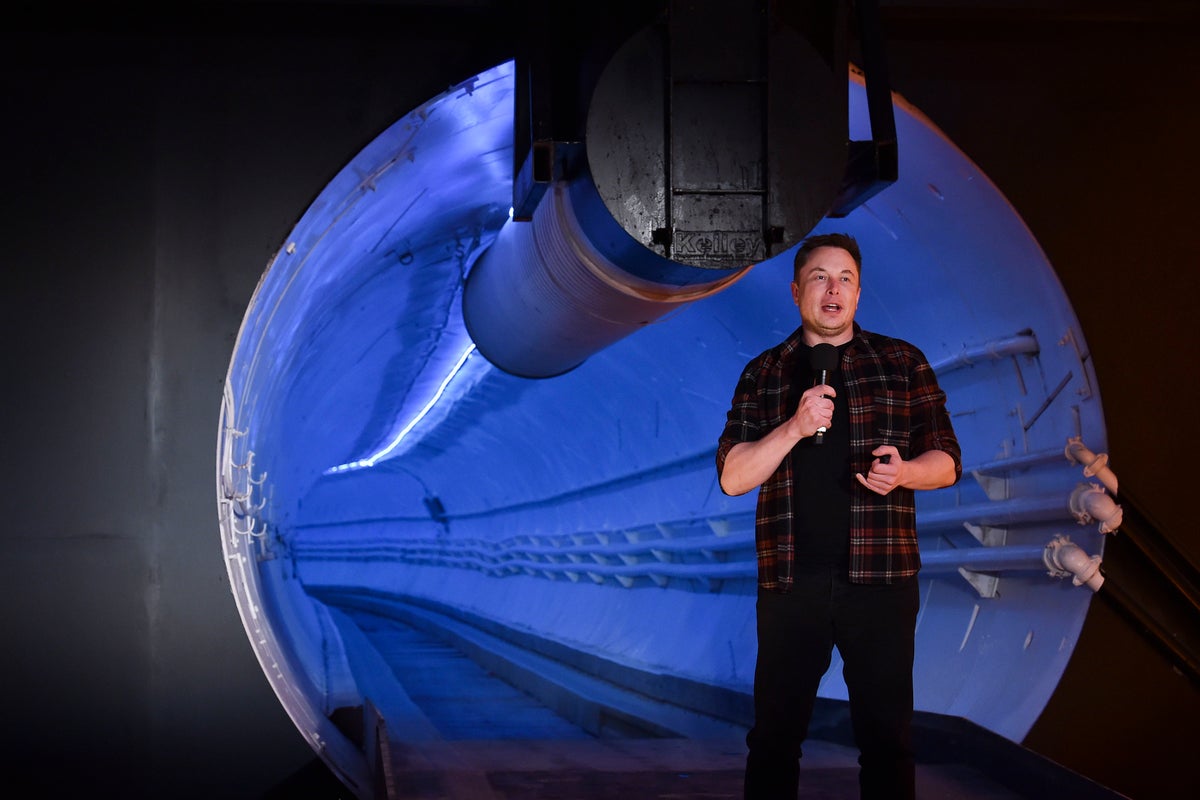Elon Musk’s tunnel-digging startup has selected Nashville for its next underground transportation project, despite concerns from local politicians.
The Boring Company said the new transit system, dubbed the Music City Loop, would connect downtown Nashville to the city’s Airport.
The company, which was founded in 2017 and has only one working network in Las Vegas, described the new project as “a bold step forward in advancing mobility, economic growth, and infrastructure modernisation”.
If approved, the system will be an all-electric and high-speed underground transportation network that is entirely owned and operated by Mr Musk and the Boring Company.
Tennessee Democrats have pushed back on the proposal, arguing that public transportation systems should be prioritised over privatised infrastructure.
“Musk’s track record and all of this isn’t about solving traffic, it’s about privatising infrastructure,” Democratic representative Aftyn Behn told The Tennessean newspaper. “It’s a continuum of Governor Lee’s agenda of privatising every last public good we have.”
Democratic Senator Heidi Campbell added: “This isn’t public transportation – it’s a privatized vanity tunnel for Elon Musk, a man with a long trail of broken promises. Tennesseans deserve real infrastructure, not more handouts from billionaires.”
Tennessee Governor Bill Lee, a Republican, offered Mr Musk a rent-free lease on state-owned land to start the project.
The deal is expected to be approved at a meeting of the state’s Department of General Services on Thursday.
“Tennessee continues to lead the way in finding creative solutions to longstanding challenges,” Governor Lee said.
“By leveraging the innovation of private companies like The Boring Company, we’re exploring possibilities we couldn’t achieve on our own as a state. This potential partnership represents the kind of forward-thinking, fiscally responsible approach that will define the future of transportation in Tennessee.”
Other planned projects for the Boring Company include a Dubai Loop in the United Arab Emirates, as well as a two-mile tunnel under the Miami River.
There are more than half a dozen cancelled or inactive projects that have previously been proposed by the company.


